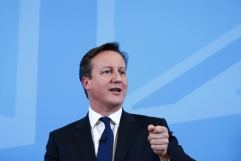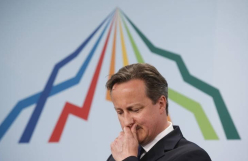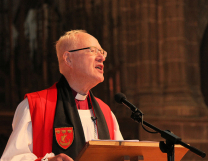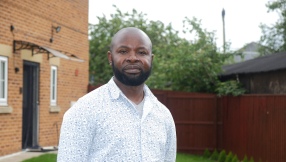The Prime Minister has outlined his strategy to defeat the "poison" of Islamist extremism in Britain.
In a speech in Birmingham he pledged a five-year plan to tackle "the failures of integration" which he described as "the struggle of our generation".
Speaking in the city that was the heart of "Operation Trojan Horse" where extremists attempted to infiltrate some schools with an Islamist agenda, Mr Cameron outlined a number of key points.
These included empowering parents to confiscate passports of children they suspect of planning to leave the UK for Syria, funding for reformist groups looking to spread a different message, new powers to combat extremists, new powers to tackle foreign-based broadcasters that promote hate and better integrated social housing.
He also said he wished to reduce segregation in schools by strategies such as shared school sites, teaching across school sites and new free schools in the most segregated areas.
A new engagement forum will be set up, and a study launched into how extremism spreads.
The Prime Minister described how some of those lured into jihad had been enticed.
"Many of them were first influenced by what some would call non-violent extremists," he said. "It may begin with hearing about the so-called Jewish conspiracy, and then develop into hostility to the West and fundamental liberal values before finally becoming a cultish attachment to death. Put another way, the extremist worldview is the gateway, and then violence is the ultimate destination."
He warned that the "sick world view" of extremists was drowning out the voice of moderate Islam and lamented a lack of confidence in British values.
There could be no more "turning a blind eye" on the basis of cultural sensitivities, he said, referring to forced marriage and female genital mutilation.
Meanwhile, the Home Secretary Theresa May refused to rule out sending ground troops to fight Islamic State in Iraq and Syria and said that whatever action the government feels is necessary will need to be supported by Parliament.
Asked whether she agreed with former army chief Lord Richards that the UK's current strategy was insufficient and ground troops were needed, she said: "I think we've been clear for some time, and the prime minister has long had the view, that we need to do more in Iraq and Syria if we're going to defeat Isil, but we're also very clear that parliament has a role."
Earlier, Mr Cameron told the US television network NBC on Sunday that the UK should "step up and do more" in the fight against Isis in Iraq and Syria. "I want Britain to do more. Be in no doubt, we're committed to working with you to destroy the caliphate in both countries," he said.
The new fronts opening up against Islamic State came as the Charity Commission published its report of its inquiry into Islamic Network. The investigation found that the charity's website had hosted historic material from 2004 that legitimised the killing of gay people and encouraged the killing of Muslims in certain circumstances. It concluded that the material encouraged violence and denigrated particular faiths and was inappropriate for the charity to host in its name on its website.
The commission established that none of the charity's current trustees were in post when the articles of concern were first uploaded, and the current trustees acted quickly to take the website offline when the material in question came to their attention and condemned the material.
Nonetheless, as part of its inquiry, the regulator concluded that more should have been done by the current trustees to monitor the charity's website to ensure its content was appropriate. It also found that the current trustees, despite their action in removing the charity's website, were too slow in implementing their new policies designed to ensure that extremism and hate material is not promoted.
The charity's aims include increasing awareness of the tenets of the Islamic faith among Muslims and non-Muslims through educational media and seminars.
The Board of Deputies of British Jews welcomed the Prime Minister's speech which comes at a time when throughout Europe, Jews have been at the sharp end of violent extremism from Jihadists and the far right and from terrorist attack in Brussels, Paris and Copenhagen. There has also been a sharp rise in antisemitic incidents in the UK.
The board said: "We particularly welcome measures such as those giving extra power to Ofcom to tackle foreign channels which promote hate; encouraging universities to denounce speeches by Islamist extremists and the new powers to tackle cult leaders and those spreading extremist messages."
However the board added that still more needed to be done to counter extremism online, including on social media.
Dr Shuja Shafi, secretary general of the Muslim Council of Britain, said: "We support sound evidence-based measures that confront terrorism effectively. Muslims across the world and in our country in particular, find the conduct and values of Daesh to be abhorrent. We agree with the Prime Minister that we must de-glamourise the Daesh cause. It is neither revolutionary, nor cool, and it certainly is against the basic teachings of Islam. We all have a part to play in this, including the media.
"We worry, however, that these latest suggestions will set new litmus tests which may brand us all as extremists, even though we uphold and celebrate the rule of law, democracy and rights for all. Dissenting is a proud tradition of ours that must not be driven underground.
"Challenging extremist ideology is what we all want, but we need to define tightly and closely what extremism is rather than perpetuate a deep misunderstanding of Islam and rhetoric, which inevitably facilitates extremists to thrive."

















